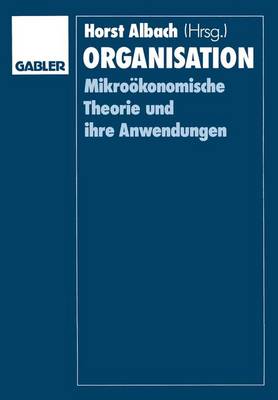Von Horst Albach A. Einleitung Die betriebswirtschaftliche Organisationstheorie hat seit den Tagen von Frederic Tay- lor und Henri Fayol eine sturmische Entwicklung hinter sich gebracht. Es ist bekannt, daB die mikrookonomische Theorie bis vor kurzem nieht viel zum Verstandnis der Be- triebsorganisation beigetragen hat. Weniger bekannt durfte sein, daB die gegenwar- tige Organisationstheorie nieht viel uber Mikrookonomie sagen will. Tatsachlich exi- stiert die Wirtschaftstheorie in der heutigen betriebswirtschaftlichen Organisations- theorie nieht. Richard Scotts Buch von 1981, welches im Jahre 1986 unter dem Titel "Grundlagen der Organisationstheorie" ins Deutsche ubersetzt wurde, sagt dazu das l folgende: "It seems we are presently on the threshold of an important new develop- ment in the theoretical models of business organization. The open rational system mo- dels that have dominated our thinking in the early sixties are being challenged and que- stioned by a whole bunch of open natural models. The new models put emphasis on the environment and its impact on behavior and on the chances of survival of organi- zations. At the same time these theories rigorously attack the assumption of the older schools that organizations behave as rational systems". Scott behandelt bevolke- rungsokologische Modelle, die in den letzten Jahren weltweite Beachtung und auch in Deutschland BefUrworter gefunden haben. Sozial-Darwinismus scheint fUr das Stu- dium von Organisationen angemessener zu sein als die mikrookonomische Theorie der Transaktionskosten. Das mag fur den Beobachter von Organisationen in der realen Welt nicht verwunder- lich sein.
- ISBN10 3409131132
- ISBN13 9783409131131
- Publish Date 1 January 1989
- Publish Status Active
- Publish Country DE
- Imprint Gabler
- Edition 1989 ed.
- Format Paperback
- Pages 367
- Language German
